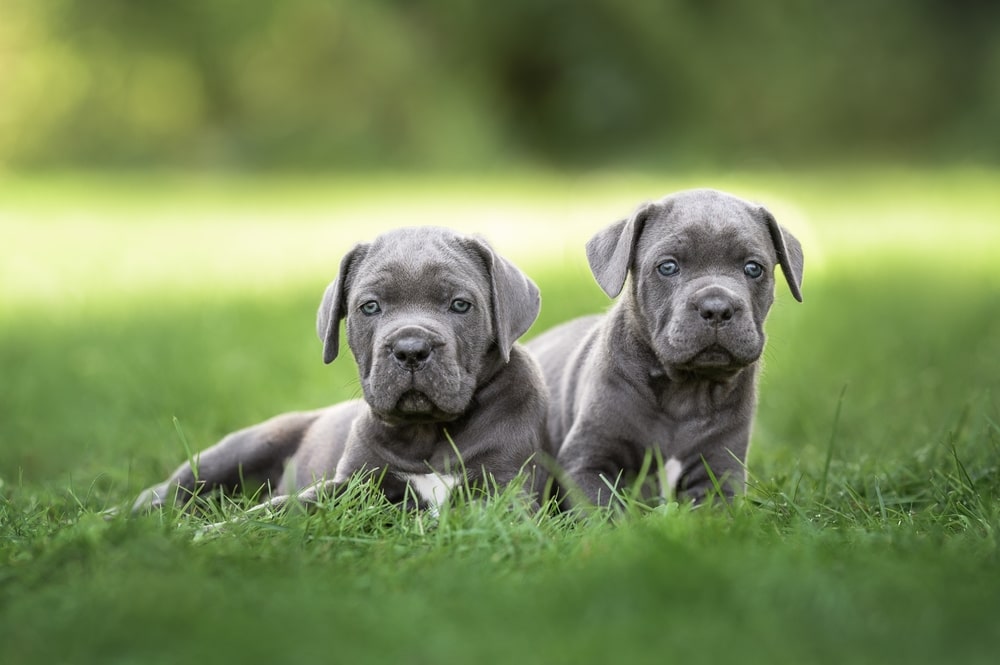
Introduction to the Cane Corso Breed
The Cane Corso, a majestic and powerful breed, has a rich history that dates back to ancient Rome. Originally bred as a war dog and later as a guardian of property and livestock, the Cane Corso is known for its loyalty, intelligence, and protective nature. These dogs are muscular and athletic, with a commanding presence that can be both impressive and intimidating. Despite their formidable appearance, Cane Corsos are often described by their owners as affectionate and gentle with their families.
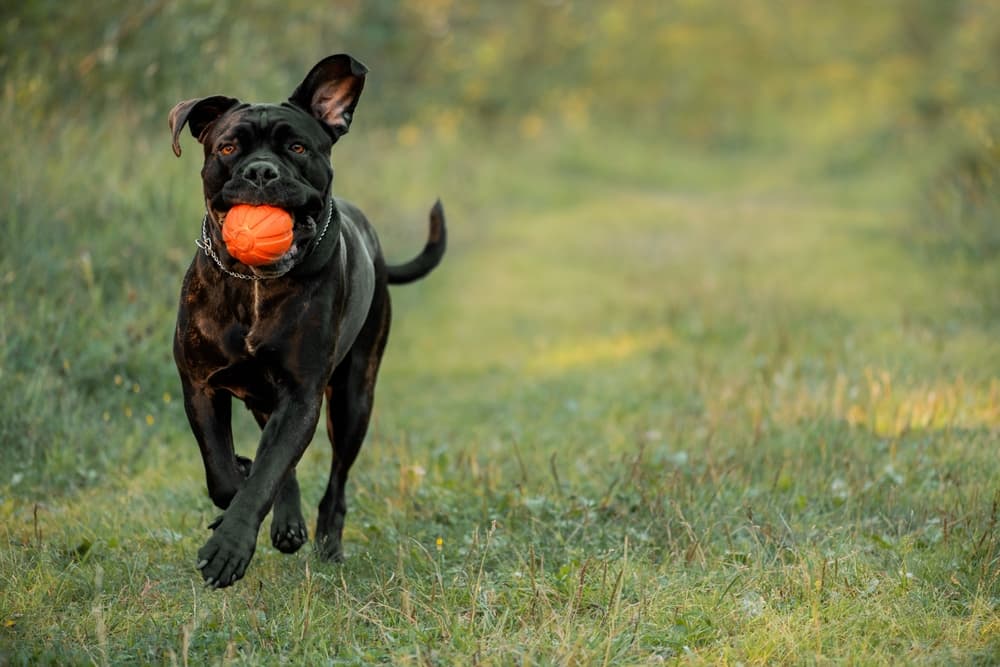
History of Cane Corso Dogs
A descendant of the ancient Roman Molossian dogs, the Cane Corso dog has a history dating back to antiquity. Originally bred as war dogs, they were used by the Romans in battles and later transitioned to roles as guardians of property, livestock, and families. The name ‘Cane Corso’ is derived from the Latin ‘Cohors,’ meaning ‘protector’ or ‘guardian.’ Over the centuries, the breed evolved to become a versatile working dog, excelling in tasks such as hunting, herding, and guarding. By the mid-20th century, the breed faced near extinction but was revived through dedicated breeding efforts in Italy. Today, Cane Corso dogs are celebrated for their loyalty, intelligence, and protective nature, making them cherished companions and guardians.
Cane Corso Temperament
When discussing Cane Corso temperament, it’s essential to differentiate between natural protective instincts and outright aggression. Cane Corsos are naturally wary of strangers and can be very protective of their families and territory. This protective nature is often mistaken for aggression. In reality, a well-trained and socialized Cane Corso can be a calm, stable, and reliable companion. Common misconceptions about the breed often stem from isolated incidents where lack of proper training and socialization played a significant role.
The Cane Corso is known for its intelligence and eagerness to please, which makes it a highly trainable dog. However, their strong-willed nature requires an experienced owner who can establish clear leadership and provide consistent training. Early socialization is crucial for Cane Corsos to ensure they grow up to be well-rounded dogs. This involves exposing them to a variety of people, environments, and other animals from a young age. Proper socialization helps to mitigate any potential aggressive tendencies and fosters a more balanced temperament.
One of the standout traits of the Cane Corso is their loyalty to their family. They form strong bonds with their owners and are known to be affectionate and gentle with children. This loyalty, combined with their protective instincts, makes them excellent guard dogs. However, it also means that they can be aloof or suspicious of strangers until they perceive no threat. This behavior is not inherently aggressive but rather a manifestation of their natural guarding instincts.
It’s important to note that the Cane Corso temperament can be significantly influenced by their environment and upbringing. Dogs that are raised in a loving, structured environment with clear boundaries are more likely to exhibit positive behaviors. Conversely, the Cane Corso that is neglected, abused, or improperly trained may develop behavioral issues, including aggression. Therefore, responsible ownership is key to ensuring that a Cane Corso’s natural protective instincts do not escalate into problematic behavior.
Another factor that can influence Cane Corso temperament is their genetic background. Reputable breeders prioritize temperament and health in their breeding programs, selecting dogs that exhibit stable and desirable traits. Potential owners should seek out breeders who conduct thorough health and temperament testing to ensure they are getting a puppy with a sound disposition.
Exercise and mental stimulation are also critical components in maintaining a balanced Cane Corso temperament. The Cane Corso is active and requires regular physical activity to prevent boredom and pent-up energy, which can lead to destructive behaviors. Engaging a Cane Corso in activities such as obedience training, agility, and interactive play can help channel their energy positively and strengthen the bond between the dog and its owner.
A Cane Corso’s temperament is a blend of their natural protective instincts, upbringing, and environment. While they are naturally wary of strangers and protective of their families, these traits do not equate to inherent aggression. With proper training, socialization, and responsible ownership, Cane Corsos can be loving, loyal, and well-behaved companions. Understanding and respecting their unique characteristics is essential for fostering a positive relationship with this remarkable breed.
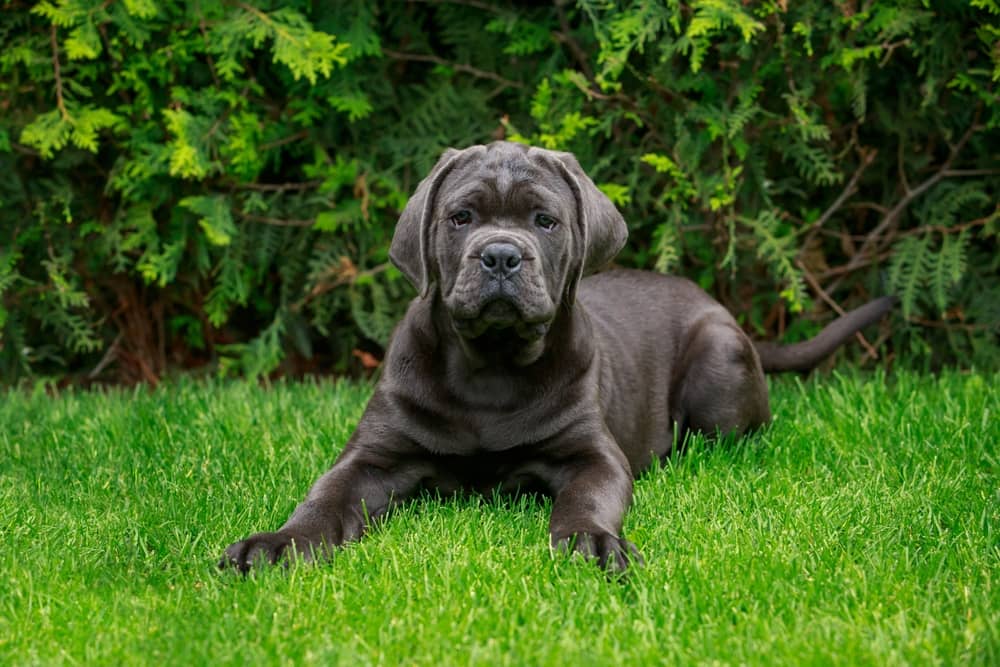
Physical Characteristics of the Cane Corso
The Cane Corso is a large and muscular breed, known for its imposing presence and athletic build. Males typically stand between 25 to 27.5 inches at the shoulder, while females are slightly shorter, ranging from 23.5 to 26 inches. Their weight can vary from 90 to 120 pounds, with males generally being heavier. The breed has a short, dense coat that is coarse to the touch. The coat colors can include black, gray, fawn, red, and brindle. Some Cane Corsos may also have a black or gray mask. One of the breed’s unique features is its expressive face, characterized by a broad skull, pronounced stop, and strong jaw. Their eyes are almond-shaped and can be various shades of brown, while their ears are typically cropped to stand erect, although natural ears are also common.
Health and Lifespan of the Cane Corso
Cane Corsos are generally healthy dogs, but like all breeds, they are prone to certain health issues. Common health problems include hip dysplasia, elbow dysplasia, and heart conditions such as dilated cardiomyopathy. They may also be susceptible to certain eye conditions like entropion and ectropion. The average lifespan of a Cane Corso is around 9 to 12 years. To maintain their health, regular veterinary check-ups are essential. Owners should also ensure their Cane Corso maintains a healthy weight, as obesity can exacerbate joint problems. Providing a balanced diet, regular exercise, and preventive care such as vaccinations and parasite control are crucial for their well-being.
Cane Corso Diet and Nutrition
A Cane Corso’s diet should be well-balanced and tailored to their age, weight, and activity level. High-quality commercial dog food that lists meat as the first ingredient is recommended. Owners can also opt for a raw or homemade diet, but it’s essential to consult with a veterinarian to ensure all nutritional needs are met. Puppies should be fed a diet specifically formulated for large-breed puppies to support their rapid growth and development. Adult Cane Corsos typically do well on a diet that includes protein, healthy fats, and carbohydrates. Feeding should be divided into two meals per day to prevent bloat, a condition to which large breeds are susceptible. Fresh water should always be available.
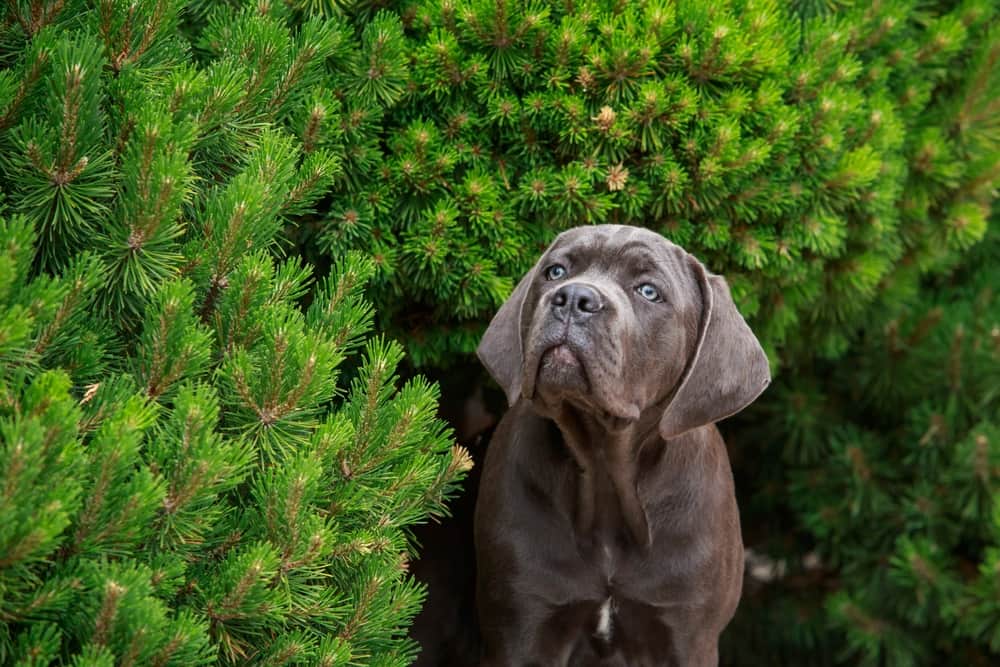
Exercise Needs for Cane Corso Dogs
Cane Corsos are active and energetic dogs that require regular exercise to stay healthy and happy. They need at least one to two hours of exercise daily, which can include walks, runs, and playtime in a secure yard. Cane Corsos also enjoy activities that challenge their minds and bodies, such as obedience training, agility, and tracking. Regular exercise helps prevent obesity and provides mental stimulation, which is essential for preventing behavioral issues. Owners should ensure that exercise is appropriate for the dog’s age and physical condition, gradually increasing intensity as the dog matures.
Ideal Living Conditions for Cane Corso Dogs
Cane Corsos are adaptable dogs that thrive best in homes with ample space. They are not ideally suited for apartment living due to their size and exercise needs. A house with a securely fenced yard is ideal, allowing them to move freely and burn off energy. Cane Corsos are known for their protective nature, so a secure environment is crucial to prevent them from wandering or becoming territorial. While they can adapt to various living conditions, they do best in a stable, loving home where they are part of the family. They should not be left alone for extended periods, as they can become bored and develop destructive behaviors.
Grooming and Maintenance for Cane Corso Dogs
Cane Corsos have a short, dense coat that is relatively low-maintenance. Regular brushing with a firm bristle brush will help remove loose hair and keep their coat looking its best. They shed moderately, with increased shedding during seasonal changes. Bathing should be done as needed, typically every few months, or when the dog becomes dirty. Regular grooming also includes checking and cleaning their ears, trimming their nails, and brushing their teeth. Dental hygiene is essential to prevent periodontal disease, so daily brushing or dental chews can be beneficial. Regular grooming sessions also provide an opportunity to check for any signs of health issues, such as skin infections or parasites.
Cane Corso Compatibility with Families and Other Pets
Cane Corsos are known for their loyalty and protective nature, making them excellent family dogs when properly trained and socialized. They are generally good with children, especially when raised with them, but due to their size and strength, interactions should always be supervised. Cane Corsos can coexist with other pets if introduced properly and socialized from a young age. However, their strong prey drive means they may not be suitable for homes with small animals. Early socialization and training are key to ensuring they are well-behaved and tolerant of other pets and strangers. Owners should establish themselves as strong leaders to prevent any dominance issues and ensure harmonious relationships within the household.
Are Cane Corso Dogs Dangerous? Factors that Can Influence Aggressive Dogs
While any dog breed can exhibit aggressive behaviors under certain conditions, it’s essential to understand the specific factors that can influence a Cane Corso’s temperament. By examining these factors, we can gain a clearer perspective on whether Cane Corsos are inherently dangerous or if their behavior is shaped by external influences. This section explores the various elements that contribute to aggression in Cane Corsos, including training, socialization, environment, and genetics.
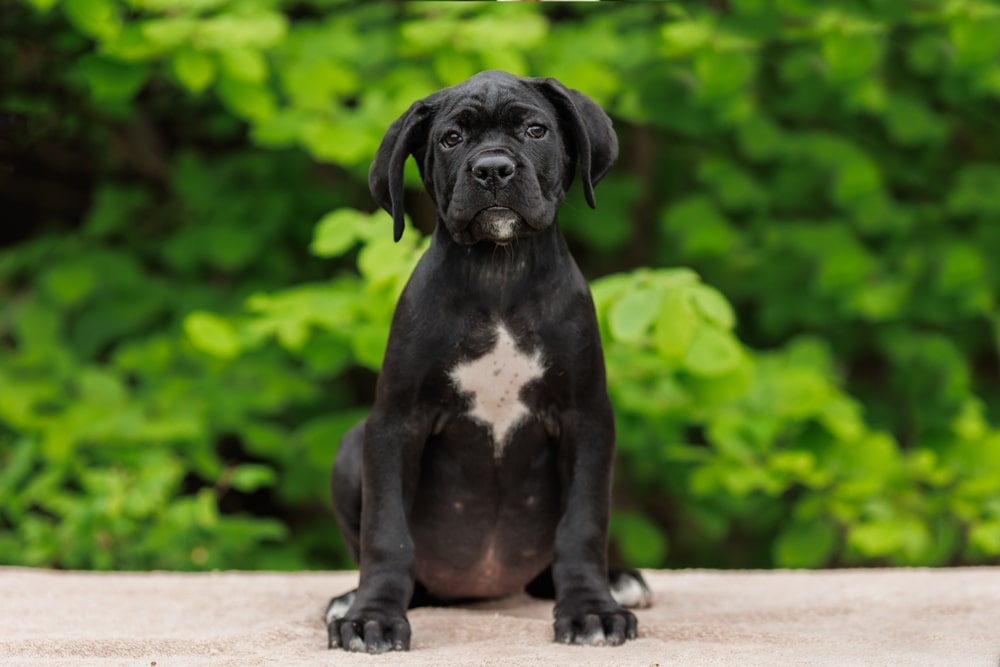
Training
Proper training by dog owners is crucial for any dog, but especially for a powerful breed like the Cane Corso. Training a Cane Corso should start early and be consistent, focusing on obedience and socialization. The Cane Corso is intelligent and eager to please, which makes them highly trainable. However, their strong-willed nature requires experienced dog owners who can establish clear leadership. Positive reinforcement techniques, such as treats and praise, work well with Cane Corso dogs. Training a Cane Corso should also include setting boundaries and teaching the dog to respect them. This helps prevent behavioral issues and ensures your Cane Corso understands its role within the family.
Socialization
Exposure to different people, environments, and other animals from a young age can help prevent aggressive tendencies in your Cane Corso. Socialization helps Cane Corso dogs learn how to interact appropriately with various stimuli. Introduce your Cane Corso puppy to a variety of experiences in a controlled and positive manner. This can include meeting new people, encountering different animals, and experiencing various environments. Proper socialization helps reduce fear and anxiety, which can lead to aggressive behavior. It also helps the dog become more adaptable and confident in different situations.
Environment
The environment in which a Cane Corso is raised can significantly impact the dog’s behavior. A stable, loving home with clear boundaries and rules will foster a well-adjusted dog. Cane Corsos thrive in environments where they feel secure and know what is expected of them. Consistency is key; dogs need to understand the rules and have them reinforced regularly. A chaotic or unpredictable environment can lead to stress and anxiety, which may manifest as aggression. Providing a structured and nurturing environment helps the Cane Corso feel safe and secure, reducing the likelihood of behavioral problems.
Genetic Factors
Genetics can also play a role in the temperament of a Cane Corso. Responsible breeders focus on breeding dogs with stable temperaments and good health. When selecting a Cane Corso, it’s important to research the breeder and ensure they prioritize temperament and health in their breeding programs. Meeting the parents of your Cane Corso puppy can provide insight into the potential temperament of the dog. Genetics can influence traits such as aggression, fearfulness, and sociability in a Cane Corso. While genetics are not the sole determinant of behavior, they can predispose a dog to certain tendencies. Responsible breeding practices help ensure that Cane Corsos have the best possible start in life.
The behavior and temperament of a Cane Corso are influenced by a combination of training, socialization, environment, and genetics. Proper training and socialization are essential for preventing aggressive tendencies and ensuring the dog is well-adjusted. A stable and loving environment provides the dog with a sense of security and helps reduce stress and anxiety. Responsible breeding practices help ensure that Cane Corsos have stable temperaments and good health. By understanding and addressing these factors, owners can help their Cane Corsos become well-behaved and confident companions.
Legal Responsibilities for Cane Corso Dog Owners
Owning a Cane Corso comes with significant legal responsibilities due to the breed’s reputation for being powerful and protective. Understanding the legal implications is crucial for any responsible dog owner to ensure compliance with local laws and mitigate potential risks. Here, we delve into various legal aspects, including breed-specific legislation, liability, and preventive measures that owners must consider.
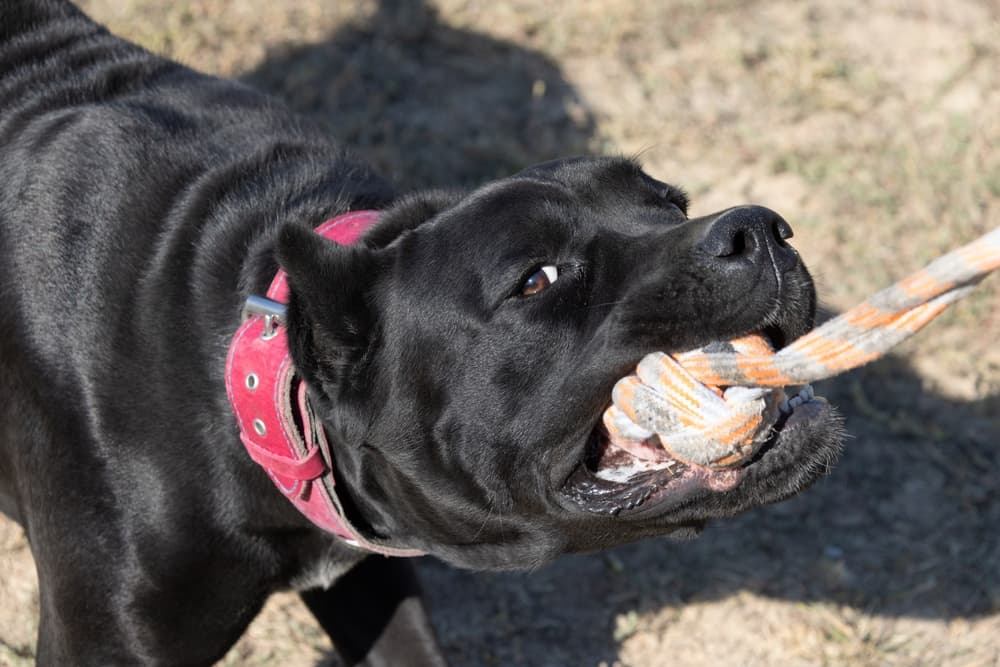
Breed-Specific Legislation (BSL)
Breed-specific legislation (BSL) refers to laws that regulate or ban certain dog breeds deemed dangerous or aggressive. Cane Corsos often fall under this category due to their size and strength. BSL can vary widely depending on the jurisdiction, but common regulations include:
Mandatory Insurance: Some areas require owners of Cane Corsos to carry liability insurance. This insurance is intended to cover any damages or injuries resulting from a dog’s aggressive behavior. Liability insurance provides financial protection for the owner in case their dog causes harm to a person or property. The coverage typically includes medical expenses, legal fees, and compensation for the injured party. By mandating insurance, jurisdictions aim to ensure that victims of dog bites or attacks are adequately compensated and that owners are held financially accountable for their pets’ actions. This requirement also encourages responsible ownership, as owners are more likely to invest in proper training and socialization to avoid potential claims.
Special Licensing: Owners may need to obtain special licenses for their Cane Corsos. This often involves paying higher fees and meeting specific requirements, such as providing proof of training and socialization. Special licensing serves multiple purposes: it helps authorities keep track of potentially dangerous dogs, ensures that owners are aware of their responsibilities, and promotes public safety. The process may include submitting documentation of obedience training, behavioral assessments, and vaccination records. In some cases, owners may be required to renew the license annually and undergo periodic inspections to ensure compliance with local regulations. By enforcing special licensing, jurisdictions aim to reduce the risk of incidents involving Cane Corsos and other high-risk breeds.
Leash and Muzzle Laws: In some places, Cane Corsos must be leashed and muzzled in public spaces. This is to prevent potential attacks and ensure public safety. Leash and muzzle laws are designed to minimize the risk of uncontrolled or aggressive behavior in public settings. A leash provides physical control over the dog, preventing it from running away or approaching strangers without the owner’s consent. A muzzle, on the other hand, prevents the dog from biting or causing harm if it becomes agitated or frightened. Compliance with these laws is crucial in maintaining a safe environment for both the dog and the public. Owners should invest in high-quality, comfortable muzzles and leashes to ensure their Cane Corso’s well-being while adhering to legal requirements.
Restricted Areas: Certain jurisdictions may prohibit Cane Corsos from entering specific areas, such as parks, schools, or other public spaces. These restrictions are often implemented to protect the public and reduce the likelihood of incidents involving aggressive dogs. Restricted areas may include playgrounds, sports fields, and other locations where children and vulnerable individuals are present. Owners must be aware of these restrictions and plan their activities accordingly to avoid legal repercussions. In some cases, designated off-leash areas or dog parks may be available where Cane Corsos can exercise and socialize safely. By respecting restricted areas, owners demonstrate responsible pet ownership and contribute to a safer community for everyone.
Liability and Legal Consequences for a Cane Corso Dog’s Aggressive Behavior
Owners can be held legally responsible for any injuries or damages caused by their Cane Corso. This liability can extend to both civil and criminal consequences, depending on the severity of the incident.
Civil Liability
If a Cane Corso injures someone or damages property, the owner may be sued for compensation. This can include medical expenses, lost wages, pain and suffering, and property repairs. In some cases, courts may award punitive damages if the owner’s negligence is deemed particularly egregious. Civil liability cases can be financially devastating for dog owners, especially if they do not have adequate insurance coverage. The legal process can also be lengthy and stressful, involving court appearances, legal fees, and potential damage to the owner’s reputation. To mitigate these risks, Cane Corso owners should prioritize proper training, socialization, and supervision of their dogs to prevent incidents that could lead to civil liability.
Criminal Liability
In severe cases, such as when a Cane Corso causes serious injury or death, the owner may face criminal charges. These charges can range from misdemeanors to felonies, depending on the circumstances and local laws. Penalties may include fines, community service, probation, or even imprisonment. Criminal liability is often pursued when there is evidence of gross negligence or reckless behavior on the part of the owner, such as failing to secure the dog properly or ignoring previous warnings about the dog’s aggressive behavior. The prospect of criminal charges highlights the importance of responsible ownership and adherence to local regulations. Owners should be aware of their legal obligations and take proactive steps to ensure their Cane Corso does not pose a threat to public safety.
Euthanasia Orders
If a Cane Corso is involved in a severe attack, authorities may order the dog to be euthanized. This is often a last resort, but it underscores the importance of responsible ownership and preventive measures. Euthanasia orders are typically issued when a dog is deemed a continuing threat to public safety and when other interventions, such as training or confinement, are considered insufficient. The decision to euthanize a dog is not taken lightly and usually involves a thorough investigation and legal process. For owners, the possibility of euthanasia orders serves as a stark reminder of the consequences of failing to manage their dog’s behavior appropriately. To avoid such outcomes, owners should invest in early socialization, consistent training, and regular veterinary care to address any behavioral issues before they escalate.
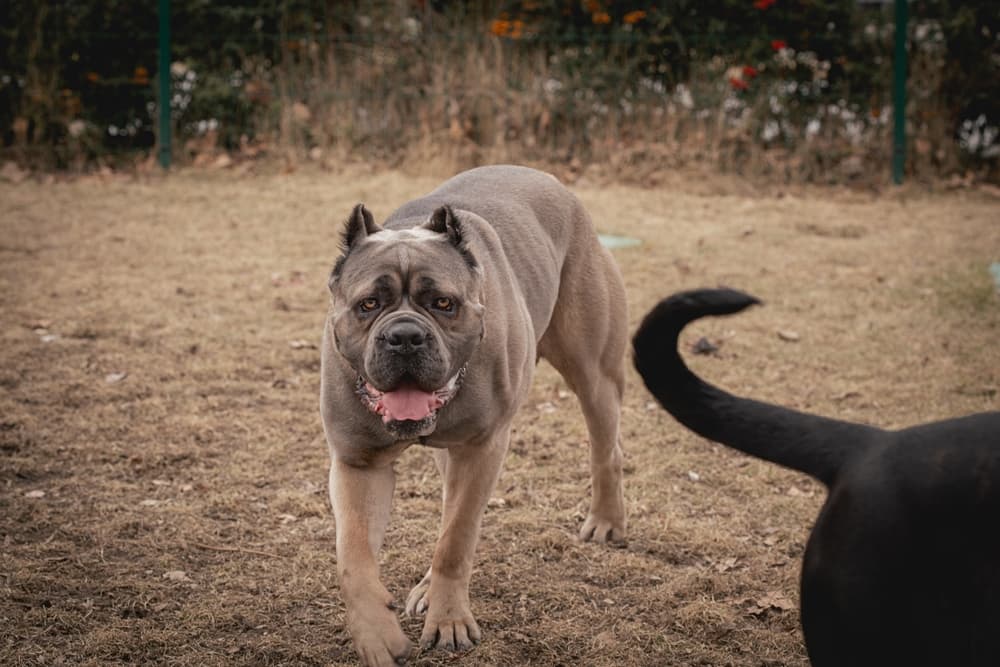
Preventive Measures and Cane Corso Dog Owner Responsibilities
To mitigate legal risks and ensure the safety of the Cane Corso and the public, owners must take several preventive measures. These responsibilities are not only legal obligations but also ethical ones.
Training and Socialization
Proper training and socialization are crucial for Cane Corsos. Owners should start training early, focusing on obedience and socialization with people and other animals. Professional training classes can be beneficial, especially for inexperienced owners. Training should be consistent and use positive reinforcement techniques such as treats, praise, and play. Socialization involves exposing the dog to a variety of environments, people, and other animals to ensure they are well-adjusted and less likely to react aggressively. Early socialization helps Cane Corsos develop confidence and reduces fear-based aggression. It’s important to continue socialization throughout the dog’s life to maintain their sociability and good behavior.
Secure Fencing
Cane Corsos should be kept in a securely fenced yard to prevent them from escaping and potentially causing harm. The fence should be high and sturdy enough to contain the dog, as Cane Corsos are strong and agile. A fence height of at least six feet is recommended, and it should be checked regularly for any weak spots or damage. Installing a locked gate can also help prevent unauthorized access to the yard. Additionally, owners should consider using a secondary barrier, such as an inner fence or kennel, to provide an extra layer of security. Secure fencing not only protects the public but also keeps the dog safe from potential dangers outside the yard.
Supervision
Owners should never leave their Cane Corso unsupervised in public or around strangers. Even well-trained dogs can act unpredictably in certain situations, and supervision helps prevent incidents. When in public, Cane Corsos should always be on a leash and, if required by local laws, muzzled. Supervision is especially important in environments with children or other pets, as sudden movements or loud noises can trigger a protective response. At home, owners should monitor interactions between their Cane Corso and visitors to ensure everyone remains safe. Providing a designated space for the dog to retreat to, such as a crate or separate room, can help manage their behavior and reduce stress
Health and Well-being
Regular veterinary check-ups and proper care are essential to maintain a Cane Corso’s health and temperament. A healthy dog is less likely to exhibit aggressive behavior. Owners should ensure their Cane Corso receives routine vaccinations, parasite prevention, and dental care. A balanced diet and regular exercise are also important for the dog’s physical and mental well-being. Mental stimulation, such as puzzle toys and training exercises, can help prevent boredom and reduce the likelihood of destructive or aggressive behavior. Monitoring the dog’s health and addressing any issues promptly can contribute to a stable and well-behaved pet.
Compliance with Local Laws
Owners must familiarize themselves with and adhere to all local laws and regulations regarding Cane Corsos. This includes obtaining any necessary licenses, carrying insurance, and following leash and muzzle laws. Compliance with these regulations not only ensures the owner’s legal protection but also promotes public safety. Owners should stay informed about any changes in local laws and be proactive in meeting all requirements. Participating in community events or training programs can also help demonstrate responsible ownership and improve the breed’s reputation. By adhering to local laws, owners can help prevent legal issues and contribute to a safer environment for everyone.
Legal Support and Resources for Cane Corso Dog Owners
Given the complexities of dog bite laws and breed-specific legislation, Cane Corso owners may benefit from legal support and resources. Consulting with an attorney who specializes in animal law can provide valuable guidance and help navigate legal challenges.
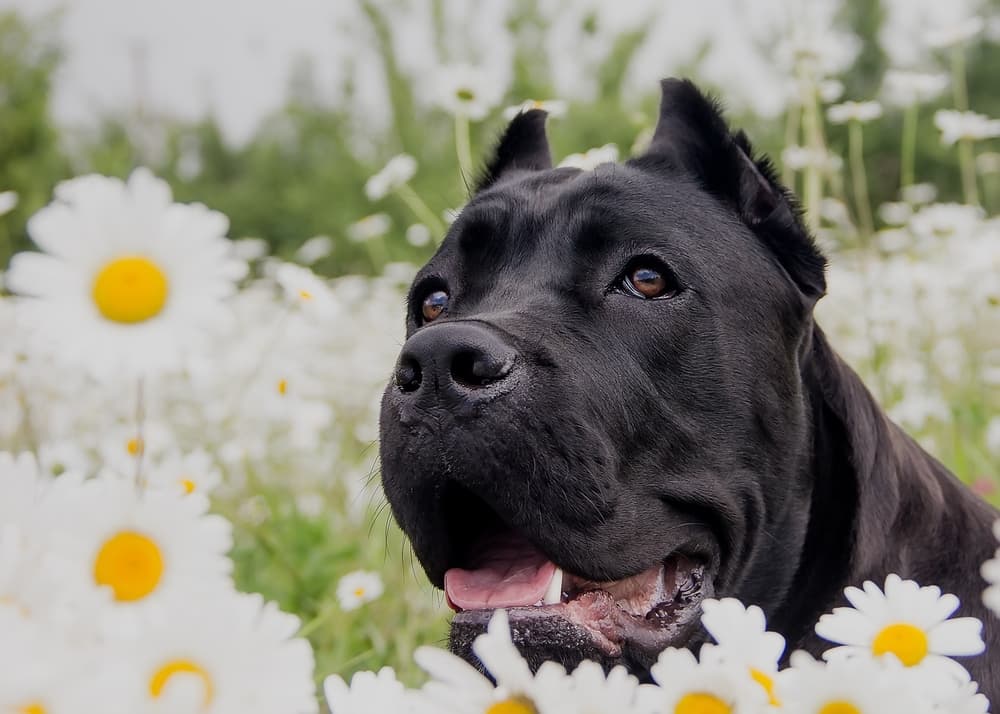
Legal Consultation
Owning a Cane Corso comes with a myriad of legal responsibilities, and consulting with an attorney can be invaluable in navigating these complexities. An attorney who specializes in animal law or personal injury law can provide crucial advice on local regulations and ordinances that pertain to Cane Corsos. They can help owners understand their legal obligations, such as obtaining the necessary licenses and permits required by local authorities. This is particularly important in areas with breed-specific legislation (BSL) that may impose additional requirements on Cane Corso owners.
In addition to advising on compliance with local laws, an attorney can represent owners in legal disputes arising from incidents involving their Cane Corso. This includes defending against lawsuits for dog bites or property damage, negotiating settlements, and representing the owner in court if necessary. Legal representation can be critical in mitigating the financial and reputational damage that can result from such disputes.
Attorneys can also assist in drafting contracts or agreements that protect the owner’s interests. For example, they can help create liability waivers for dog walkers, pet sitters, or anyone else who may be responsible for the dog in the owner’s absence. These waivers can limit the owner’s liability in case the dog causes harm while under the care of another person. Additionally, an attorney can draft agreements for co-ownership or breeding arrangements, ensuring that all parties’ rights and responsibilities are clearly outlined and legally enforceable.
Insurance Providers
Insurance is a critical consideration for Cane Corso owners, given the potential risks associated with owning a powerful and protective breed. Some insurance companies specialize in policies for dog owners, including coverage for breeds like Cane Corsos. These policies can provide financial protection in case of an incident, such as a dog bite or property damage.
Liability insurance for dog owners typically covers medical expenses, legal fees, and compensation for the injured party. This coverage can be crucial in mitigating the financial impact of a lawsuit or claim resulting from an incident involving the dog. Some policies may also cover damage to property, such as if the dog were to damage a neighbor’s fence or belongings.
When selecting an insurance provider, Cane Corso owners should look for companies that have experience with high-risk breeds and offer comprehensive coverage. It’s important to read the policy details carefully to understand what is covered and any exclusions or limitations. For example, some policies may have breed-specific exclusions or may not cover incidents that occur off the owner’s property.
In addition to liability coverage, some insurance providers offer policies that cover veterinary expenses, which can be beneficial for maintaining the dog’s health and well-being. These policies can help cover the cost of routine check-ups, vaccinations, and emergency care, ensuring that the dog receives the necessary medical attention without placing a financial burden on the owner.
Owners should also consider the reputation and customer service of the insurance provider. Reading reviews and seeking recommendations from other dog owners can help identify reliable companies that offer good customer support and handle claims efficiently. By selecting the right insurance provider, Cane Corso owners can have peace of mind knowing they are financially protected in case of an incident.
Training and Behavior Experts
Proper training and behavior management are essential for Cane Corso owners to ensure their dog is well-behaved and safe around people and other animals. Professional trainers and behaviorists can offer specialized training programs tailored to Cane Corsos, addressing specific behavioral issues and helping owners implement effective training techniques.
Training experts can provide guidance on obedience training, teaching the dog basic commands such as sit, stay, come, and heel. Obedience training is crucial for establishing control and ensuring the dog responds appropriately to commands, which is particularly important for a large and powerful breed like the Cane Corso. Trainers can also help with advanced training, such as agility or protection work, depending on the owner’s goals and the dog’s abilities.
Behaviorists specialize in addressing specific behavioral issues, such as aggression, fear, or anxiety. They can assess the dog’s behavior and develop a customized plan to address the underlying causes of these issues. For example, if a Cane Corso exhibits aggressive behavior towards strangers, a behaviorist can work with the owner to desensitize the dog and teach it to respond calmly in various situations. This can involve techniques such as counter-conditioning, positive reinforcement, and gradual exposure to the triggers of the aggressive behavior.
Training and behavior experts can also provide valuable advice on socialization, helping owners expose their Cane Corso to different environments, people, and animals in a controlled and positive manner. Socialization is crucial for preventing fear-based aggression and ensuring the dog is comfortable and well-adjusted in various situations.
In addition to in-person training sessions, many trainers and behaviorists offer online consultations and resources, providing flexibility for owners who may not have access to local experts. Online training programs can include video tutorials, virtual coaching sessions, and written guides, allowing owners to work on training and behavior management at their own pace.
Overall, investing in professional training and behavioral expertise is essential for Cane Corso owners to ensure their dog is well-behaved, safe, and a positive member of the community. By working with experts, owners can address any behavioral issues, implement effective training techniques, and provide their dog with the guidance and support it needs to thrive.
Owning a Cane Corso is a significant responsibility that comes with various legal implications. Understanding and complying with breed-specific legislation, taking preventive measures, and seeking legal support are essential steps for responsible ownership. By doing so, owners can ensure the safety and well-being of their Cane Corso while minimizing legal risks and fostering a positive relationship with their community.

Resources and Support for Cane Corso Owners
Owning a Cane Corso comes with unique challenges and responsibilities, but fortunately, there are numerous resources available to help you navigate them. Here are some valuable resources for Cane Corso owners, including breed clubs, training programs, and online communities:
Cane Corso Breed Clubs
- Cane Corso Association of America (CCAA): The CCAA is the official breed club for Cane Corsos in the United States. They offer a wealth of information on breed standards, health, and training. They also host events and provide resources for breeders and owners. CCAA Website
- International Cane Corso Federation (ICCF): The ICCF is dedicated to preserving and promoting the Cane Corso breed worldwide. They provide resources on breed history, health, and training and organize events and shows. ICCF Website
Cane Corso Training Programs
- AKC Canine Good Citizen (CGC) Program: This program is an excellent starting point for Cane Corso owners. It focuses on basic obedience and good manners, which are crucial for a breed known for its strength and protective nature. AKC CGC Program
- Leerburg Online University: Leerburg offers a variety of online training courses specifically designed for large and powerful breeds like the Cane Corso. Their courses cover everything from basic obedience to advanced protection training. Leerburg Online University
- K9 Training Institute: This institute offers comprehensive training programs that focus on positive reinforcement techniques. Their courses are suitable for Cane Corsos and cover a wide range of topics, including obedience, socialization, and behavior modification. K9 Training Institute
Cane Corso Online Communities
- Cane Corso Forum: This online forum is a great place to connect with other Cane Corso owners. Members share advice on training, health, and breed-specific issues. It’s a supportive community where you can ask questions and share experiences. Cane Corso Forum
- Reddit’s r/CaneCorso: This subreddit is an active community of Cane Corso enthusiasts. It’s a great place to find tips, share stories, and get advice from fellow owners. r/CaneCorso
- Facebook Groups: There are several Facebook groups dedicated to Cane Corso owners. These groups offer a platform to share photos, ask for advice, and connect with other owners. Some popular groups include “Cane Corso Owners” and “Cane Corso World.” Simply search for these groups on Facebook to join.
By utilizing these resources, Cane Corso owners can ensure they are well-equipped to provide the best care, training, and support for their dogs.
FAQ: How to Manage an Aggressive Dog
1. What are the signs of aggression in dogs?
Signs of aggression in dogs can include growling, barking, snapping, biting, showing teeth, stiff body posture, and intense staring. It’s important to recognize these signs early to address the behavior before it escalates.
2. What causes aggression in dogs?
Aggression in dogs can be caused by various factors, including fear, territoriality, possessiveness, pain, frustration, and lack of socialization. Understanding the root cause of the aggression is crucial for effective management.
3. How can I prevent my dog from becoming aggressive?
Preventing aggression involves early socialization, consistent training, and positive reinforcement. Expose your dog to different environments, people, and other animals from a young age to help them become well-adjusted and confident. Regular training sessions that focus on obedience and good behavior are also essential.
4. What should I do if my dog shows signs of aggression?
If your dog shows signs of aggression, it’s important to remain calm and avoid punishing the dog, as this can exacerbate the behavior. Instead, try to identify the trigger and remove it if possible. Consult with a professional dog trainer or behaviorist to develop a plan to address the aggression.
5. Can professional training help manage an aggressive dog?
Yes, professional training can be highly effective in managing an aggressive dog. Trainers and behaviorists can assess the dog’s behavior, identify triggers, and create a customized training plan. They can also teach you techniques to manage and modify your dog’s behavior.
6. Are there specific training methods for aggressive dogs?
Training methods for aggressive dogs often include desensitization and counter-conditioning. Desensitization involves gradually exposing the dog to the trigger in a controlled manner, while counter-conditioning focuses on changing the dog’s emotional response to the trigger through positive reinforcement.
7. How important is socialization in preventing aggression?
Socialization is crucial in preventing aggression. Proper socialization helps dogs learn how to interact appropriately with different people, animals, and environments. It reduces fear and anxiety, which are common triggers for aggressive behavior.
8. Can medical issues cause aggression in dogs?
Yes, medical issues can cause aggression in dogs. Pain, neurological problems, and hormonal imbalances can all contribute to aggressive behavior. If your dog suddenly becomes aggressive, it’s important to consult a veterinarian to rule out any underlying medical conditions.
9. What role does exercise play in managing aggression?
Regular physical activity helps reduce stress and anxiety, which can contribute to aggressive behavior. It also provides mental stimulation and helps prevent boredom, which can lead to frustration and aggression.
10. How can I safely introduce my aggressive dog to new people or animals?
Introducing an aggressive dog to new people or animals should be done gradually and under controlled conditions. Use a leash and muzzle if necessary, and keep initial interactions short and positive. Reward your dog for calm behavior and gradually increase the duration and intensity of interactions as your dog becomes more comfortable.
11. What should I do if my dog bites someone?
If your dog bites someone, it’s important to remain calm and take immediate action. Ensure the victim receives medical attention and provide your contact information. Report the incident to local authorities if required by law. Consult with a professional trainer or behaviorist to address the underlying cause of the aggression to prevent future incidents.
12. Can medication help manage aggression in dogs?
In some cases, medication can help manage aggression in dogs, especially if the behavior is linked to anxiety or other psychological issues. A veterinarian can prescribe medication as part of a comprehensive treatment plan that includes behavior modification and training.
13. How can I create a safe environment for my aggressive dog?
Creating a safe environment for an aggressive dog involves managing their surroundings to minimize triggers. Use baby gates or crates to create safe spaces, and avoid exposing your dog to situations that may provoke aggression. Ensure your dog has plenty of mental and physical stimulation to reduce stress and anxiety.
14. What are some common mistakes to avoid when managing an aggressive dog?
Common mistakes include using punishment-based training methods, ignoring early signs of aggression, and exposing the dog to triggers without proper management. It’s important to use positive reinforcement, seek professional help, and create a structured environment to manage aggression effectively.
15. When should I seek professional help for my aggressive dog?
You should seek professional help if your dog’s aggression is severe, escalating, or if you’re unsure how to manage it safely. A professional trainer or behaviorist can provide expert guidance and develop a tailored plan to address your dog’s specific needs.
Managing an aggressive dog requires patience, consistency, and a proactive approach. By understanding the causes of aggression and implementing effective training and management strategies, you can help your dog become a well-behaved and confident companion.
Conclusion
While Cane Corso dogs have a reputation for being aggressive, this is often a result of misunderstanding and lack of proper training and socialization. With responsible ownership, proper training, and adherence to legal requirements, Cane Corsos can be loyal, loving, and well-behaved companions. Understanding the breed’s temperament and taking preventive measures can help ensure a positive experience for both the dog and the owner. If you own or are considering owning a Cane Corso, it’s essential to be aware of your responsibilities and the legal implications to ensure the safety and well-being of everyone involved.